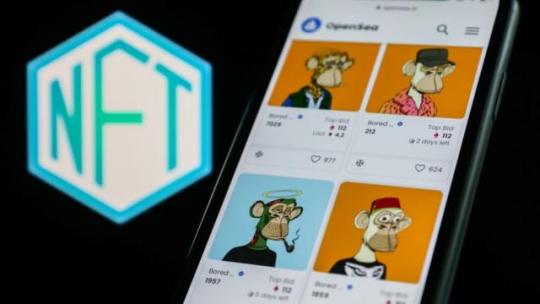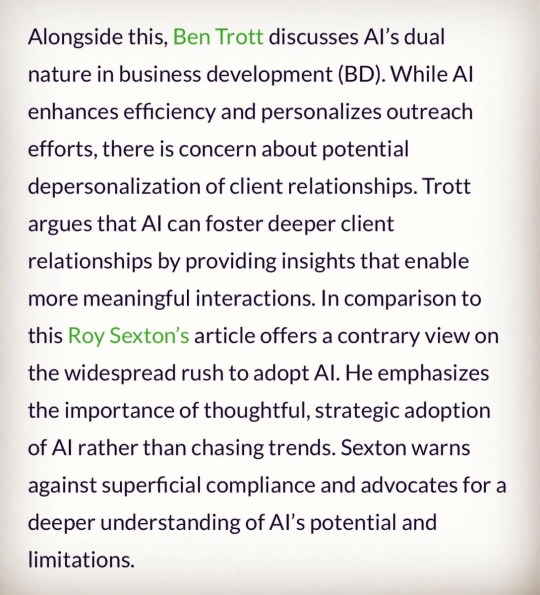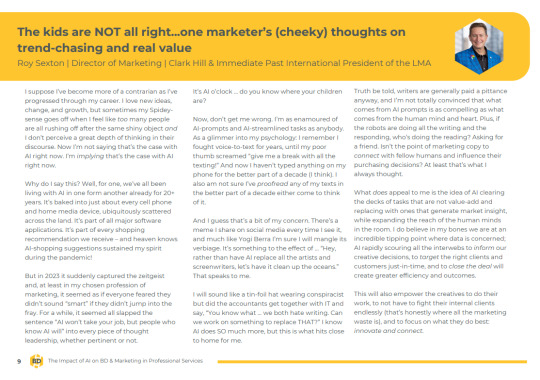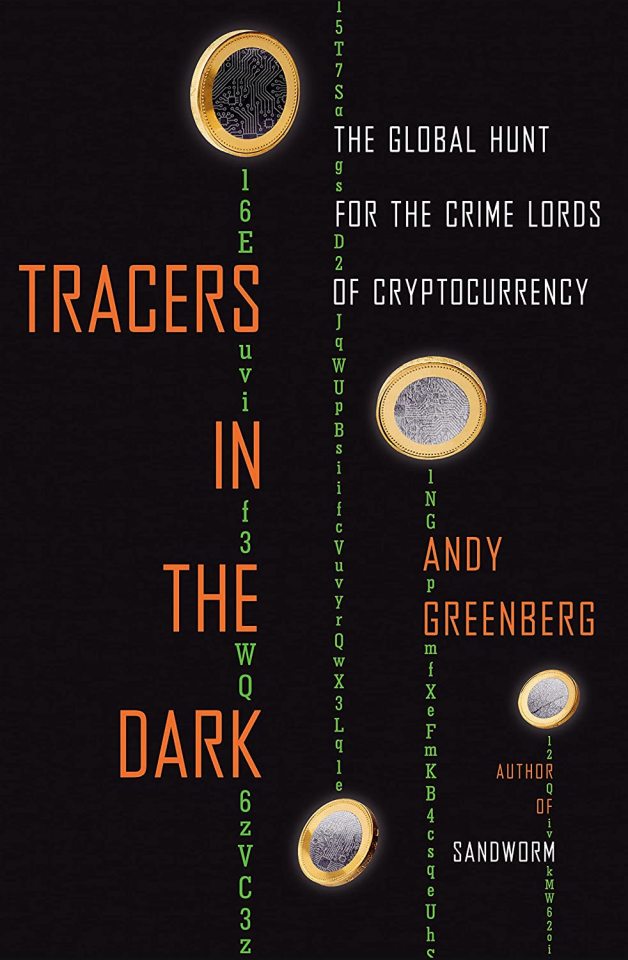#the theory of the blockchain
Text
A teoria do mais tolo 1.2
O primeiro comprador paga uma quantia inflacionada de dinheiro por um bem que ele logo colocará à venda por um preço ainda mais exorbitante, na tentativa de encontrar alguém ainda mais “tolo” para comprá-lo. BBC News Mundo – 17 jun 2022
Neste jogo perigoso, o que se comercializa podem ser tulipas ou bitcoins, segundo declarações de Bill Gates, o fundador da Microsoft afirmou em uma conferência…

View On WordPress
#A teoria do mais tolo: as duras críticas de Bill Gates às criptomoedas e NFTs# ativos podres grande crise financeira 2008# Bolhas financeiras# certificados de propriedade de ativos virtuais ou físicos# coleção de arte digital Bored Ape Yacht Club# crash de 1929# criptomoeda mais famosa# euforia coletiva tulipas exóticas# evasão fiscal# fundador da Microsoft Bill Gates# Holanda no século 17# Mais Retorno# mania das tulipas# mercado das criptomoedas e dos NFTs (tokens digitais)# mundo da arte ou da música digital# pôquer poker# Teoria do Mais Tolo (Greater Fool Theory)# Tesla e PayPal# tulipas primeira grande bolha financeira da história mundial# Veljko Fotak professor do Departamento de Finanças da Escola de Administração da Universidade de Buffalo Nova York EUA#BBC News Mundo#dinheiro Money digital carteira#nft blockchain
3 notes
·
View notes
Text
“Thoughtful, strategic adoption of AI rather than chasing trends.” The Professionals: Inside Professional Services Marketing magazine covers launch of BD Ladder’s book “The Impact of AI on Business Development & Marketing in Professional Services” (with contribution from yours truly) #lmamkt #lma24 #AI
Thank you, The Professionals: Inside Professional Services Marketing magazine, for this feature and shout out.
EXCERPT: “AI is certainly not a new phenomenon, and many firms and individuals within professional services firms are experimenting and even using it to save time. However, for many firms, its full potential to deliver and enhance their business development and marketing efforts has so…

View On WordPress
#AI#AI won’t take your job#and Paul Roberts#artificial intelligence#Axinn#bd ladder#Ben chiriboga#Ben Paul#Ben Trott#Big data#Blockchain#but people who know AI will#chambers USA#chaos theory#Clubhouse#David MacDonald#Ian Malcolm#Internet of things#jeff goldblum#Jennifer Ramsey#jurassic park#legal marketing#legal marketing association#lucy king#Lynn Tellefsen Stehle#Megan Senese#Michelle Howard#michigan#NFTs#Passle
0 notes
Text

Saw this poster in my doctor's office and got her to send me a print :D
#bitcoin#blockchain#satoshi nakamoto#btc#multi-disciplinary#mind#diagram#office#doctor#brain#energy#time#cryptography#game theory
1 note
·
View note
Text
Dow Theory in the Age of Blockchain: Cryptocurrencies and Beyond
From Charles Dow's era to the digital age: Can the time-tested Dow Theory conquer the wild world of cryptocurrencies and new assets? 🚀 #DowTheory #Cryptocurrencies #DigitalAge
In the ever-evolving world of finance, the enduring principles of Dow Theory stand as a beacon of wisdom, guiding investors through the tumultuous seas of the stock market for generations. But as we find ourselves in the midst of a digital revolution, where cryptocurrencies and new asset classes have emerged with transformative potential, the question arises: Can Dow Theory’s time-tested…

View On WordPress
#Bitcoin Growth#Blockchain Revolution#Cryptocurrency#Digital Assets#Digital Transformation#DJIA#DJTA#Dow Theory#FinTech#Innovation#Market Trends#Market Volatility
1 note
·
View note
Text
wtf maybe the random interaction nets guy from r/haskell was onto something
#hed pop in with highly inflated claims about a toy project he was making#iirc he got a grant from some ethereum group to put it on the ethereum blockchain#but that never took off for obvious reasons#anyways ive now seem two projects that are spinning off of that#more working from trad theory than from his version but apparently his blog posts wre helpful secondary sources
1 note
·
View note
Text
i think one of the fundamental problems with the word "techbro" is that it has multiple meanings, some of which contradict each other.
the original term brogrammer referred to programmers who act in a very stereotypical masculine way, as a pejorative. the word "techbro" was sometimes used as a synonym for this. this is why the word "bro" is there, because it's a comparison to frat bros. this is also the only sense mentioned on the wikipedia page. this is also the sense i see the least usage of on tumblr; it was really more of a thing back in 2012-2013 or so.
people also use it to refer to people who are pushing the latest fad; web 3.0, blockchain shit, NFTs, LLMs, whatever. this usage does not require that the person actually knows anything about programming. some of these people genuinely believe in what they're advocating for, some of them are just hopping onto the latest money-making thing. this is the y combinator set.
a third usage is to refer to people who are very into self-hosting, and "own your hardware" type stuff and don't understand that computing is a compromise and not everyone wants to spend all their effort getting stuff to work. this is the rms type. unlike the second definition, this one requires the person to have fairly deep technical knowledge. theoretically you could have someone who doesn't know a lot about computers but is real big into this kind of stuff, but in practice that never happens.
(i'm broadly sympathetic to this type; i avoid music streaming and sync all my music using open-source software, that sort of thing. the "techbro" part, in theory, comes when they look down on others for not making the same choices. of course, the line between "you're looking down on me" and "you're arrogant for simply believing that you're right" is thin.)
in particular, sense-2 and sense-3 "techbros" have very opposite beliefs! one wants to run everything "in the cloud", the other wants to run everything locally. one wants to let chatgpt run your life, the other hates the idea of something they can't audit be that important. both tend to be very "technology will save us" types, but the way they go about that is very different. one makes very sleek-looking but extremely limited UI, the other will make ultra-customizable, ultra-functional UI that's the most hideous and hard-to-use thing you've seen in your life.
and so you can see here the problem: what can we actually say about "techbros" that's meaningful, other than "techbro is when i don't like someone who likes technology"? if a word isn't used as a self-descriptor, but only as an insult, what stops it from becoming broader and broader until it loses all usefulness?
213 notes
·
View notes
Note
i dont think anything you do on here can actually make you seem less cool. this is tumblr. saying cringe shit will make you look cooler to us. actual impressive life achievements will make you look cooler to us. the only way out is NFTs i fear
>actual impressive life achievements
I think you have an inflated opinion of me lol
>NFTs
I have the mildly unpopular opinion that the Blockchain is a good idea in theory that was permanently ruined by the moronic ways it was implemented, including the NFT craze, but I'm guessing that won't lose me too much Tumblr cred lol
48 notes
·
View notes
Text
Dan Olson's newest documentary, "This Is Financial Advice," has really gotten into my head.
I should mention this first: I'm going to call the memestock redditors believing the MOASS conspiracy theory "apes" because that's one of their most common names for themselves. Like most of their other self-descriptors, it implies a lack of intelligence. There's a weird self-deprecating streak in the memestock community, which you'd think would be incompatible with a typical conspiracy theorist's overconfidence. You'd be wrong. That's part of what's interesting.
Part of me wants to break down all the places where the self-proclaimed apes' financial theories break down. Like, if we accept that Ken Griffin needs to buy back more Gamestop shares than are in existence, and that the Reddit apes already own most real shares of Gamestop, and that all of them will hodl as the stock prices rise to plausibly high stock prices, the hedge funds wouldn't be forcibly liquidated to pay arbitrarily high prices demanded by the apes. The short sale contract is a contract between the short-seller and the lender; nobody involved has an obligation to the shareholders. If stock prices rose too high, the short-seller would either cut a deal with the lender or break contract and deal with the legal consequences.
But this kind of thing is pointless; the people who believe that stuff aren't available to be persuaded, and the exercise requires accepting so many absurd premises that its educational value is limited.
Another part of me is fascinated by how the whole memestock community is basically playing the world's slowest game of chicken. They seem to conceptualize their conflict with hedge funds as—well, first of as a conflict that both sides are participating in, where both sides are fighting by the same rules. But those rules are, themselves, kinda silly. The apes ascribe their inevitable, ultimate victory to the fact that they're willing to grind video games for little practical reward; their actions involve stubbornly refusing to sell the stocks they buy, even as the company they represent goes bankrupt and warns investors that those shares are likely to become worthless soon.
As far as I can tell, they conceptualize the conflict as basically a contest of will—the diamond-handed apes holding onto their stocks versus the greedy hedge funds...doing...something. Spreading FUD, I guess. It's such a weird conflict and bears so little relationship to how actual finance works.
It also overlaps in some key ways with other topics Dan Olsen has covered, which isn't surprising. Everyone needs a niche, and Olsen's is increasingly online conspiracy theories and grifts. Also, /r/Superstonk users are swimming in the same waters as a lot of conspiracy theorists and crypto-bros, and the sort of person who buys GME because Reddit says it'll make them all gorrilionaires and then swallows conspiracies like tic-tacs to explain why the price is still falling is probably vulnerable to blockchain scams and flat-earth theories and such.
But there are also interesting differences! To start with, despite being a financial conspiracy theory, MOASS is remarkably non-antisemitic. There is still antisemitism, don't get me wrong, but since the villains of their conspiracy are international financial institutions, I expected more. I expected the antisemitism to be front and center, even more prominent than in most conspiracy theories. But it's not! It's probably less antisemitic than the average conspiracy theory!
There's also the fact that apes are basically trying to organize a counter-conspiracy. It's an ineffective one, considering how its plans are based on a bunch of lies they keep telling each other, but they're still organizing an effort to create a new world order with themselves at the top, by accumulating financial capital and forcing the US government to pay obligations owed to them. It sounds like the kind of thing a conspiracy theory with the average amount of antisemitism would say Jews are doing. You don't see that kind of counter-conspiracy "we're gonna take over the world" thing often, outside Christian Dominionist circles and imperialist war hawks, and their "we" is a lot broader than the apes'.
On a completely unrelated note, one of MOASS's core figureheads, DFV, is an ordinary securities broker who wanted to be a finance Influencer. He said that GameStop was probably undervalued by about 50%; it would probably see a bump in 2020 from the ninth console generation (which wouldn't be delayed by any unexpected global events that also hurt brick-and-mortar retail in general), which would give it the capital needed to potentially pivot to a business model that's more sustainable in our digital world.
By saying GME was undervalued, defending his theory despite the global pandemic ruining the assumptions it was based on, and celebrating GME's obviously unsustainable prices as evidence of his theory being correct despite being caused by completely different factors, DFV became a bit of a thought leader. The apes started reading anything he said in public as a coded message to them, which lead DFV to withdraw from the memestock community and social media overall, which lead to the apes simply recasting him as the sort of shadowy cabal leader that would be a conspiracy theory villain if he wasn't supposedly supporting and leading the apes from the shadows.
DFV is not perfect. He committed to his pet theory even when the basis for it collapsed, even though COVID gave him a perfect ego-preserving exit ("I was wrong, but who could have predicted the pandemic?") He then took an equally unpredictable freak event as confirmation of that theory, even though it was unrelated to the theory's premise. But he saw a bunch of increasingly conspiratorial cranks who wanted to make him a figurehead in their movement, potentially giving a huge boost to his finance Influencer dreams, and said "no, bye". I can respect that.
M
Ryan Cohen is such a character. He's a perfect example of a capitalist failson. He's an activist investor, a concept which I've been meaning to ramble about ever since I learned of the term in one of my accounting classes. But he likes attention and is willing to give apes the kind of crumbs they like for it. And maybe manipulate them for his own profit.
Despite this, the apes still treat Cohen as a trustworthy savior, so much that Carl Icahn got drafted into the pantheon through flimsy association with Cohen. They think he has this master plan to create a megacorporation out of failing retailers that he has already stopped meddling with, which will somehow make the apes into billionaire cyberpunk villains.
Speaking of which: For all that the memestock apes like to position themselves against Wall Street's real-life cyberpunk villains, their predictable bad decisions are making a tidy profit for those same villains. (Aside from the one company that went out of business because it was making short sales that were considered reckless before Reddit started memestocking.) I don't have a point here, it's just ironic.
And, of course: Is the headband guy the same as the "I'm within 400 feet of an elementary school to prove the haters wrong and tell you about an unmissable business opportunity" guy from the Contrepreneurs video?
31 notes
·
View notes
Text
The Philosophy Behind Bitcoin

Introduction
In the world of finance, few innovations have sparked as much intrigue and debate as Bitcoin. But beyond its role as a digital currency, Bitcoin embodies a profound philosophy that challenges traditional financial systems and proposes a new paradigm for economic freedom. Understanding the philosophy behind Bitcoin is essential to grasp its potential impact on our world.
The Origins of Bitcoin
In 2008, amid the global financial crisis, a mysterious figure known as Satoshi Nakamoto published the Bitcoin whitepaper. This document outlined a revolutionary idea: a decentralized digital currency that operates without the need for a central authority. The financial turmoil of the time, characterized by bank failures and government bailouts, underscored the need for a system that could function independently of traditional financial institutions.
Core Philosophical Principles
Decentralization-Decentralization lies at the heart of Bitcoin’s philosophy. Unlike traditional financial systems that rely on centralized authorities such as banks and governments, Bitcoin operates on a decentralized network of computers (nodes). Each node maintains a copy of the blockchain, Bitcoin's public ledger, ensuring that no single entity has control over the entire network. This decentralization is crucial for maintaining the integrity and security of the system, as it prevents any one party from manipulating the currency or its underlying data.
Trustlessness-Bitcoin's trustless nature is another fundamental principle. In traditional financial systems, trust is placed in intermediaries like banks and payment processors to facilitate transactions. Bitcoin eliminates the need for these intermediaries by using blockchain technology, where transactions are verified by network nodes through cryptography. This system ensures that transactions are secure and reliable without requiring trust in any third party.
Transparency-The transparency of Bitcoin’s blockchain is a key philosophical aspect. Every transaction that has ever occurred on the Bitcoin network is recorded on the blockchain, which is publicly accessible. This transparency allows anyone to verify transactions and ensures accountability. However, while the ledger is public, the identities of the individuals involved in transactions remain pseudonymous, balancing transparency with privacy.
Immutability-Immutability is the concept that once a transaction is recorded on the blockchain, it cannot be altered or deleted. This is achieved through cryptographic hashing and the decentralized nature of the network. Immutability ensures the integrity of the blockchain, making it a reliable and tamper-proof record of transactions. This principle is crucial for maintaining trust in the system, as it prevents fraudulent activities and data corruption.
Financial Sovereignty-Bitcoin empowers individuals by giving them full control over their own money. In traditional financial systems, access to funds can be restricted by banks or governments. Bitcoin, however, allows users to hold and transfer funds without relying on any central authority. This financial sovereignty is particularly valuable in regions with unstable economies or oppressive governments, where individuals may face restrictions on their financial freedom.
The Ideological Spectrum
Bitcoin’s philosophy is deeply rooted in libertarian values, emphasizing personal freedom and minimal government intervention. It also draws inspiration from the cypherpunk movement, a group of activists advocating for privacy-enhancing technologies to promote social and political change. These ideological influences shape Bitcoin's emphasis on decentralization, privacy, and individual empowerment.
Real-World Applications and Challenges
Bitcoin's philosophy extends beyond theory into practical applications. It is used for various purposes, from everyday transactions to a store of value akin to digital gold. However, this revolutionary system also faces challenges. Regulatory issues, scalability concerns, and environmental impact are some of the hurdles that need addressing to realize Bitcoin’s full potential.
Conclusion
The philosophy behind Bitcoin is a radical departure from traditional financial systems. Its principles of decentralization, trustlessness, transparency, immutability, and financial sovereignty offer a new vision for economic freedom and integrity. As Bitcoin continues to evolve, its underlying philosophy will play a crucial role in shaping its future and potentially transforming the global financial landscape.
Call to Action
Explore more about Bitcoin and consider its implications for your own financial freedom. Engage with the community, stay informed, and think critically about the role Bitcoin can play in our economic future. Let’s continue the journey of understanding and embracing the Bitcoin revolution together.
#Bitcoin#Cryptocurrency#FinancialFreedom#Decentralization#Blockchain#DigitalCurrency#CryptoPhilosophy#SatoshiNakamoto#Cypherpunk#FinancialSovereignty#BitcoinRevolution#CryptoCommunity#DigitalEconomy#TechInnovation#FutureOfFinance#EconomicFreedom#CryptoEducation#BitcoinPhilosophy#BlockchainTechnology#financial education#financial empowerment#financial experts#finance#unplugged financial#globaleconomy
6 notes
·
View notes
Text
I hate ranting about AI discourse a lot and worry I sound like soapbox sadie but I generally worry about this stuff fast tracking dead internet theory and making the world a lot worse long term.
I've always been a futurist at heart but this stuff feels like a technological dead end with little benefits for the improvement of the world or humanity.
Of all the things to be automated who thought art was the one that required that? Like "Fuck yeah lets kill all the art jobs but keep the shit manual labour ones." Seems like the opposite of what post scarcity automation was promising years ago.
I get normies using this gen AI stuff, I see the appeal and nobody wants to be given a lecture.
But what happens when movies are all AI generated, stories are AI generated, all art has been scrapped and AI sludge has overrun the entire internet not to mention an endless flood of realistic misinformation that erodes human trust while doing damage to democracy the likes we've never seen?
Even being online, majority of sites are unusable or ruined plus you can't trust people online since there are billions of bots posing as real people and users.
But hey sure it will work itself out, after all these companies self regulate so they will have nothing but altruistic motives and hey big tech gave us the gig ecomony and the blockchain which are totally a boon for soceity.
6 notes
·
View notes
Text
US senate UFO hearings, July 2023
The US Senate UAP/UFO hearings featuring 'whistleblower' David Gursh-whatsisname this morning kinda made me wanna paint my own original digital drawing, commenting how the hearings themselves hurt my brain cells.
…But unfortunately I have shirts to design for friends (read: more important things to do) so I'm settling for some quick n' dirty meme image macros.


To quote one of the replies under one of the article shares on Twitter/Threads/Mastodon:
I'm surprised the Flat-Earth Hearing didn't immediately follow this one.
———
I mean like, if you've got new concrete evidence and some actually valid new avenues of investigation then sure, present them and please make your case.
But if you're just going to rehash decades old theories and claim 2nd-hand witness from unwilling sources then the burden of proof is on you. (And the burden of proof, as far as I'm concerned in this particular moment in time, has not been satisfied.)
———
An explainer roundup-article I personally trust from The Guardian:
Grusch has not seen the alien craft himself, but said in an interview with the Debrief that his claims are based on “extensive interviews with high-level intelligence officials”.
———
Instead of "chaos grifters" I had thought of instead labeling that second one "cryptofascists". But I didn't go that route because I'm thinking the crypto/blockchain/NFT/generative art crowd would take away the wrong message, and it would lead to unnecessary & distracting debate.
When I say "cryptofascists" I'm thinking of all the cryptically dogpiling culture-war grifters like Milos Yiannopoulos, Alex Jones, Steve Bannon, whomever Q really was, all the trolls at 4chan/b/ and 4chan/pol, and all those who spout cryptic messages for the purpose of gaslighting society into believing that everything is meaningless and there is no truth. Cryptofascism is a societally toxic international ideology and I firmly stand against it.
Cryptofascism includes those who peddle flat-earth, climate change denial, anti-vaxx, protocols of the elders of zion and all such similar brain-melting conspiracy theories for the purposes of sowing chaos or just for t3h lulz.
Many of them, if not all of them, driven by personal vendetta for a world that they feel have "wronged" them or "cheated" them.
Their fuel is attention & "engagement", many of them grifting from supplement-pill hustles and oils and such to swindle billions of dollars from the depressed and lonely. I curse every keyboard & screen these cryptofasicsts touch.
[/rant]
Sorry for that firebrand just now I got myself a bit too worked up thinking about all this. 🙏🙏🙏
13 notes
·
View notes
Text
Are the kids all right? My thoughts on marketing, BD and AI in The BD Ladder’s latest eBook
Are the kids all right? Are we too concerned with trend-chasing as opposed to delivering real value? Find out my thoughts on marketing, BD and AI in my article in The BD Ladder’s latest eBook.
Download your copy today and read the thoughts and opinions of industry leaders including Ben Chiriboga, Lynn Tellefsen Stehle, Ben Trott, David MacDonald, Megan Senese, Jennifer Ramsey, Richard W Smith,…

View On WordPress
#AI#AI won’t take your job#and Paul Roberts#artificial intelligence#bd ladder#Ben chiriboga#Ben Paul#Ben Trott#Big data#Blockchain#but people who know AI will#chaos theory#Clubhouse#David MacDonald#Ian Malcolm#Internet of things#jeff goldblum#Jennifer Ramsey#jurassic park#legal marketing#legal marketing association#lucy king#Lynn Tellefsen Stehle#Megan Senese#Michelle Howard#michigan#NFTs#Richard W Smith#roy sexton#social media
0 notes
Text
Political theory in the digital age and the rhetoric of political speeches: a blog about politics n stuff.
Okay let's start with explaining some of the words in the title:
Political theory: is the study of politics, its concepts and even historical figures that took part in its advancement or the historical record of political thoughts overall.
the digital age: meaning this day and age, where all information is available to everyone all the time and accessible through computer technology or any other modern device that we use.
the advent of digital technology has significantly transformed political communication, it reshaped the way political information is spread, especially when elections are about to start, social media platforms transformed into this fast news dissemination hub that's even faster than what it usually is. the news, regardless of being true or just a misinformation strategy to gain audience to the politicians' campaigns are and will stay at the top of the charts until the end of the battle between the amount of adversaries.
And not only did this technological progress impact the desperate tries of the politicians and their contest to ridicule themselves while making sure to announce every thought they have, problematic or not; but it has also affected the relationship between governments and their constituents. Yes, it has become a transparent one where the voices of the people are easier to hear as well as their complains, but what has also become transparent is the clear lack of will of these governments to help these people and how much they're actually working to make the positive change in their lives, which is very little. The poor management of the e-governments moderation showed the poor management of projects made in real life as well as their capacity to handle crisis and emergencies and should it continue as such, it will only lead to more deterioration in aspects of life as well as the luxury of thought to afford a roof to live under.
E-governance might sound like a fancy term, but it could evolve into an even fancier monster with blockchain technology. While it promises transparency and security, it also encourages the rise of a high-tech surveillance state, where every move is watched and recorded, and every opinion is and will be punished regardless of the intention.
Let's talk about the debates on technological determinism and how it messes with our political theories. Some people believe that technology is like a bossy puppeteer pulling all the strings in politics. It's not a happy thought because it makes it seem like we have no say in what happens and technology just takes over. and this is like giving up on trying to make things better. We might think, "Why bother discussing politics or trying to change things if technology is running the show?" It's a bit like saying we're stuck on a ride we can't control.
This view makes everything seem too simple. Politics is already complicated, but if we blame everything on technology, we miss out on important discussions about power, how we're governed, and how society works because we're too busy blaming technology for everything. This way of thinking also lets people off the hook. Instead of holding political leaders accountable for their dumb and thoughtless decisions, we can just blame it on technology. It's an easy way out, and it stops us from asking the tough questions or thinking about the consequences of political choices.
Which leads us to topic of the rhetoric of political speeches, and how leaders use language to navigate this complex landscape and whether they're using technology as a scapegoat or addressing the real issues.
Rhetoric: means the art of effective or persuasive speaking or writing.
Political speeches often feature carefully crafted phrases, loaded with symbolism and connotations. Leaders may use positive language to inspire confidence or negative language to evoke fear or concern, which is very easy to achieve despite what many believe saying they can't be fooled by politicians.
The easiest strategy to use is emotional appeals where they use personal stories or shared values or any emotional resonance which evokes empathy and mobilizes support, influencing how individuals relate to the issues presented in the speech because there's nothing a human love more than making a story about them or remotely relatable to their personal share of emotional events.
The framing of issues through specific terminology can sway public perception, framing a topic in a way that aligns with the speaker's agenda and the use of repetition to certain convincing words can and will flip the coin to any desired side the speech figure chooses. And they do it so well because the confidence of a speaker can have a significant impact on what the people wants to hear, and even when rejecting the speaker's idea they will continue to listen to the entire speech simply because convincing you that you're listening with your own free will is the very essence of their intoxicating power on you.
Being charismatic and making simple faint jokes to loosen the seriousness of the topic will either make you comfortable with the speaker's public image, or in rage with the audacity and thus continuing to watch and listen regardless because you want to know more so you can know how to answer at the end or you want to give them the benefit of the doubt because their jokes weren't that bad ( and that's why most people feel intrigued by sociopaths and serial killers, they are charming).
Which is why using social media as the news platform for the political view is the best way to control the crowd, making users exposed to numerous opinions about the same topic all the time makes them vulnerable and confused and easy to sway with each new opinion freshly baked. And the simplicity demanded by platforms often lead to oversimplified and reductionist representations of complex political issues where everyone easily has a say in it.
Political debates devolve into divisive online battles and in this digital echo chamber, the ease in which political opinions are manipulated and distorted becomes increasingly concerning and the control of scandals is becoming easily moderated.
With all the created bubbles and trends and topics offered through direct engagement and the interactive nature of social media or any type of technological way of news spread, it is fast to have new distractions every minute of using our devices and though it is what most people hope for to run from the reality of their lives even for a couple of hours, it has become the very essence of power for most corrupted political parties to use in order to have control over everyone and sadly we have offered it to them on a plate of gold. Easily showing our personal lives to the public and leaving a very dark digital footprint that can be used against us by the same parties that offer transparency and security won't lead to any good no matter how much we evolve technologically.
------
I think the idea stops here, I shouldn't ramble more because I know I will drive to more topics and this post will never end lol, I am not a native English speaker so please bear my language faults.
Please share your thoughts about this subject, I would love to hear from you guys.
#politics#my writing#blog#rambles#thoughts#late night thoughts#writing#writers on tumblr#politique#pov#opinion#writerscommunity#drink it write it#blogging#girl blogging#wow okay
3 notes
·
View notes
Text
Tracers in the Dark

In Tracers in the Dark, Andy Greenberg traces the fascinating, horrifying, and complicated story of the battle over Bitcoin secrecy, as law enforcement agencies, tax authorities and private-sector sleuths seek to trace and attribute the cryptocurrency used in a variety of crimes, some relatively benign (selling weed online), some absolutely ghastly (selling videos of child sex abuse).
https://www.penguinrandomhouse.com/books/690603/tracers-in-the-dark-by-andy-greenberg/
Bitcoin’s early boosters touted its privacy protections as a game-changer, a way for people to exchange money with one another without anyone else being able to know about it. But the reality is a lot more complex. In a very important way, Bitcoin is the opposite of private: every transaction is indelibly inscribed upon the blockchain, linked to pseudonymous identifier.
In theory, if you are careful about not linking a wallet address to your real identity, then your transactions are not traceable to you.
In practice, this is really, really, really hard.
There are so many ways to slip up and expose your identity, and even if you maintain perfect operational security, other people might slip up and do it for you. This is a lesson that many cryptocurrency users learned the hard way, as Greenberg documents.
The de-anonymizers who sought to expose Bitcoin transactions had a major advantage: users of Bitcoin believed the hype and really thought that the blockchain provided them with a powerful — even invulnerable — degree of anonymity. They used cryptos to buy and sell a lot of illegal things, from fentanyl to murder for hire, over long timescales. That meant that they attracted the attention of law-enforcement agencies, who were able to use the eternal, indelible blockchain to backtrack their subjects’ every transaction to the very first days of cryptocurrency.
Like Greenberg’s previous book, Sandworm (a history of Russian state-backed malware operations in Ukraine), Tracers uses current events to conduct a master-class in the art and science of digital forensics, laying out the tactics and countertactics of a specific kind of cyberwarfare:
https://www.latimes.com/entertainment-arts/books/story/2019-11-01/sandworm-andy-greenberg-cybersecurity
Starting with the infamous Silk Road takedown, and moving through other “dark market” seizures like AlphaBay, Greenberg draws on incredible first-person accounts, digital forensics, court documents and well-placed sources to spin out a tense, exciting technothriller. We meet dirty cops, snake-eyed drug-lords, and brilliant technologists and researchers who find devilishly creative strategies to hide or uncover.
Greenberg also provides a rare and non-sensationalistic deep dive into the unthinkable world of child sexual abuse material marketplaces. These are the darkest corners of the human psyche and the digital world, and Greenberg’s tick-tock depiction of the seizure of “Welcome to Video,” the largest such market ever, is chilling.
In the final section of the book, Greenberg considers the geopolitics of secret money. We hear a little (too little, honestly) from people presenting the human rights case for financial privacy. This is a complex issue and I’m deeply ambivalent about it myself, but it’s a subject worthy of its own book. This cursory treatment of human rights and finance is an inevitable artifact of the book’s structure: if you chronicle the adventures of cops hunting criminals, you won’t encounter the stories of oppressed people hiding from authoritarians.
But when it comes to other geopolitical questions — like the role of crypto in fueling state-backed ransomware from North Korea — Greenberg has a front-row seat, and his account of this aspect is top-notch.
Greenberg also gives some space to the claims of developers of more privacy-focused cryptocurrencies like Monero and Zcash, airing credible accounts of how these might correct the defects in Bitcoin’s privacy model — and credible critiques arguing that they, too, will fall before forensic investigators’ creative tactics.
Above all, this is a book about the attacker’s advantage, the idea that defenders win by making no mistakes, while attackers need only find one single exploitable lapse to attain victory. Greenberg’s account of the move/countermove dynamic of criminals and investigators are perfect illustrations of this phenomenon. The attackers — feds of various description — have many advantages, but above all, they are blessed not having to be perfect. They make all kinds of errors, and it doesn’t matter, because no one is hunting them. Meanwhile, their quarry — largely unsympathetic criminals destroying their victims’ lives without a shred of empathy — are haunted by minuscule errors in the distant past.
The attacker’s advantage, combined with the blockchain’s eternal and indelible memory, constitute a powerful argument against the possibility of using blockchains to attain financial privacy. We all slip up. The reason the feds catch their prey isn’t that they’re smarter — it’s that they don’t have to be. The feds don’t permanently inscribe their every error on an indelible public ledger. The defenders have chosen a defense that involves this tactic. They have, in other words, chosen a system of privacy for the infallible — a category that effectively doesn’t exist.
This makes for a pretty devastating critique of public ledgers as a tool of privacy. And also, you know, a cracking technothriller.
25 notes
·
View notes
Text
The Ultimate Location for Online Strategy and RPG Games: Exploring Eberron
Eberron.io develops as a lighthouse for both aficionados and explorers in the dynamic world of online gaming, where virtual environments are entwined with complex tales. For fans of RPG and strategy games, this virtual refuge is a wonderland, providing a wide variety of activities that include everything from intense gaming to bitcoin game theory.
Exploring Eberron - For players interested in exploring the worlds of online strategy and RPG games, Eberron.io stands out as a refuge. This platform is a gold mine of gaming experiences with a broad selection of games carefully chosen to appeal to a varied audience. Exploring Eberron.io is a complete joy for individuals who like character-driven adventures and rich narratives. Play games that need tactical skill and critical thinking to engage in epic battles, command armies, and conquer virtual regions. These strategy games provide an amazing fusion of resource management, diplomacy, and combat in anything from historical settings to future landscapes.

Online Strategy and RPG Games - The gaming platform offers a wide variety of RPG titles that transport players on exhilarating adventures through exotic settings, each filled with its own narrative and missions. Eberron.io provides a variety of options to satisfy your RPG desires, whether you are setting out on a solo mission to rescue a kingdom or establishing alliances with other players in a large multiplayer environment. The range of military strategy games that Eberron.io proudly presents will appeal to strategy lovers. The library on Eberron.io guarantees that fans of strategy games will never run out of problems to solve.
Cryptocurrency Game Theory - The incorporation of Bitcoin game theory into several Eberron.io games is one of the platform's more exciting features. With this novel strategy, the fascinating world of virtual money and the complex strategic aspects of the game are combined. Players may engage in games where their choices affect both how well they do in-game and how well they comprehend cryptocurrency systems. Gamers may create a special route to triumph by learning to balance gaming strategy with virtual economy.
Crypto Mining Games - By bringing users to the fascinating world of crypto mining games, Eberron.io goes beyond conventional gaming experiences. These games successfully combine amusement and the opportunity for financial gain by allowing players to earn bitcoin incentives via in-game actions. Explore the intriguing realm of blockchain technology while participating in missions, resolving riddles, and overcoming obstacles. Your gaming attempts get an additional level of excitement as a result of this new frontier.
Rpg Game Store - Eberron.io acts as your virtual gaming store and is the one-stop shop for anything RPG-related, delivering a hand-picked collection of games to fit your tastes. The platform offers a wide variety of alternatives, whether you like futuristic sci-fi realms or traditional fantasy ones. By presenting you with top-tier options that match your gaming preferences, Eberron.io assures that you will not have to spend hours sorting through endless lists of games.

Overall, Eberron.io stands out as a model of innovation in the rapidly changing world of online gaming by providing a broad variety of RPG and strategy games. This platform has it all, from rich narrative to complex military tactics, from delving into cryptocurrency game theory to engaging in crypto mining activities. Eberron.io assures that every click, every choice, and every triumph drive gamer towards a new age of digital entertainment by fusing the excitement of gaming with the possibilities of blockchain technology. Start exploring Eberron.io right now to discover the future of online RPGs and strategic games. You may explore the fascinating realms, complex stories, and strategic difficulties from the convenience of your computer.
Social media links:-
facebook:- https://www.facebook.com/eberron.io/
Instagram: https://www.instagram.com/eberron.io/
Twitter:- https://twitter.com/Eberron_EBR13
Telegram:- https://t.me/eberrontoken
Reddit:- https://www.reddit.com/user/eberrontoken
YouTube:- https://www.youtube.com/channel/UCA_sHBn9v3GmkrzBsDD9AhQ
youtube
youtube
youtube
2 notes
·
View notes
Note
What's your opinion on condensed matter physics? 😊
they're neat! i think there's a lot of misunderstanding in public outreach about it, because they behave in many ways counterintuitively to our everyday experience of matter
the field allows us to understand the dynamics of extreme states, like neutron stars or the quark-gluon plasma phase of the universe. i don't know what direct applicability it has beyond pure research, but honestly that's a point in its favor for me. we don't need superconducting microchips, we need it to show us the constraints for a route to a better physical theory
that said, i know semiconductors and lasers are technologies arising from condensed matter research, and lasers form the basis of interferometry (which is more like my field, if i had one) -- but lasers arose out of research for research's sake, the thing was not the end goal. i was just saying this to my roommate but i think the goal-oriented focus on technological applicability is a misstep of the US empire. we may be missing a lot of novel phenomena by providing funding to development of some marketable or weaponizable application instead of purely researching the underlying physics for their own sake
this is why there's so much obsession in the news over quantum computing, the blockchain, and machine learning, they are the technological applicability goal itself, in absence of a thorough, robust theory of the mechanics (condmat, encryption, and stats, respectively). same goes for fusion reactors in absence of a complete theory of plasma physics, or particle colliders in absence of a complete theory of magnetism, honestly. to some degree these things are built to probe the theory, but i think we've got it backwards, where it's necessary to sell the concept of the applicability of the thing before you can get it built to probe any theory, in a way that would not be such an obstacle without the capitalist prerequisite of marketability or the military prerequisite of weaponizability
5 notes
·
View notes